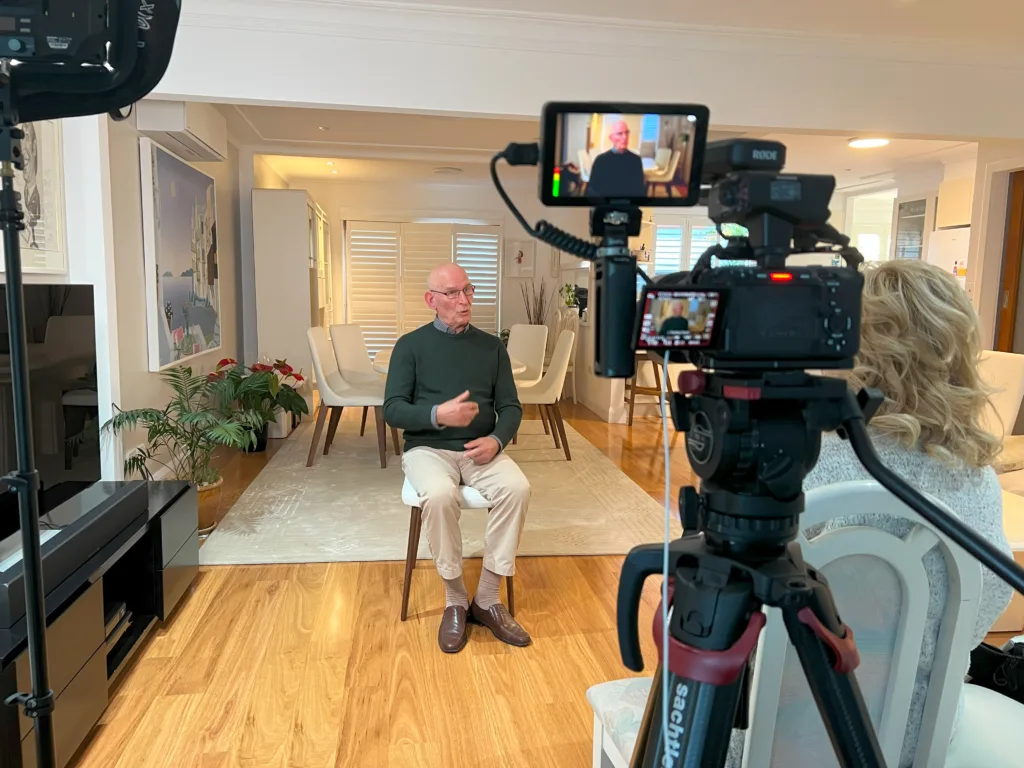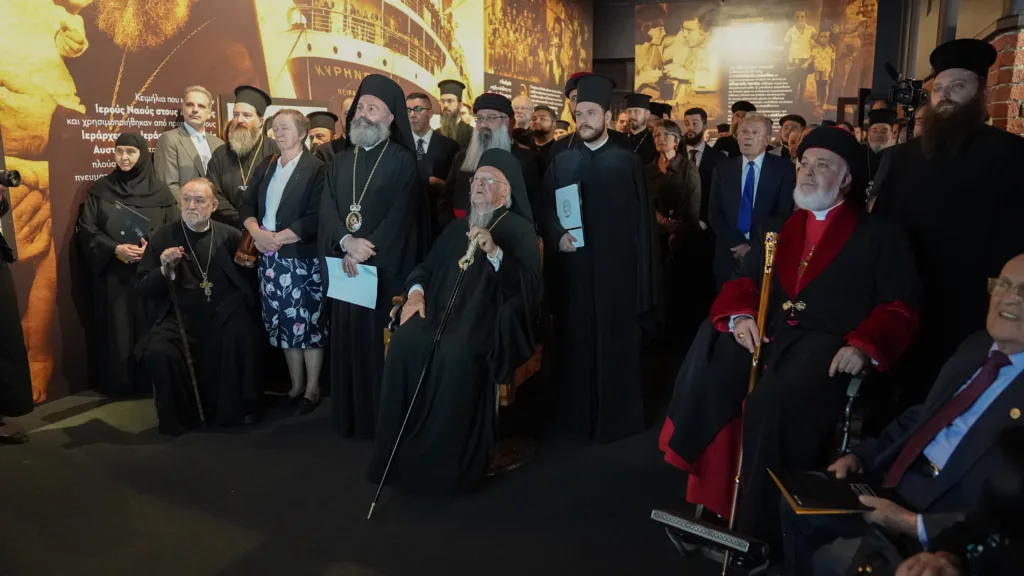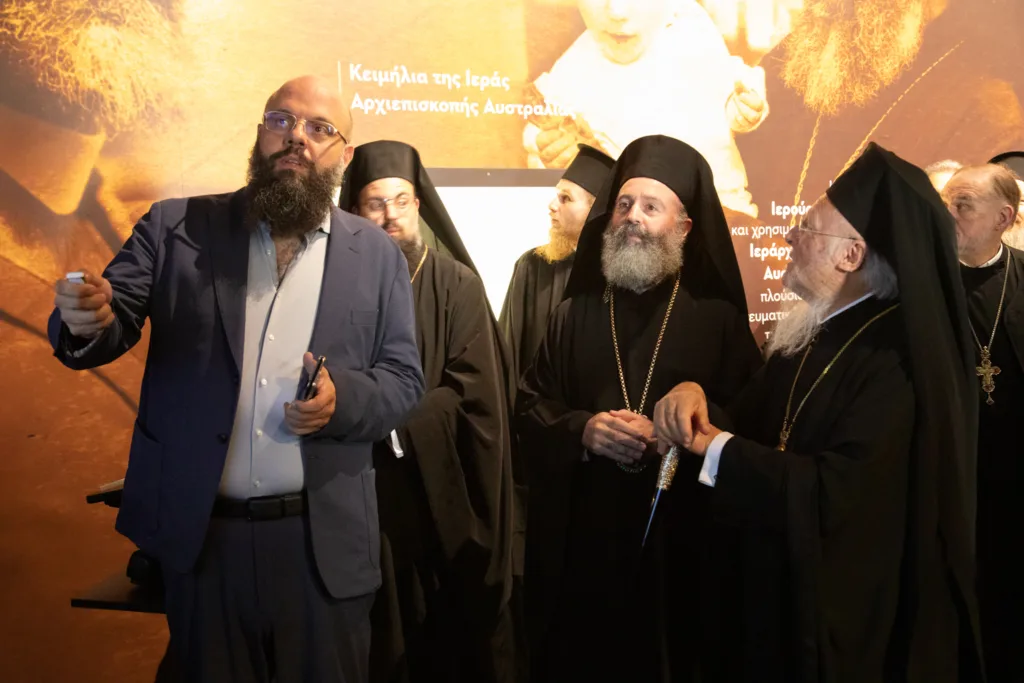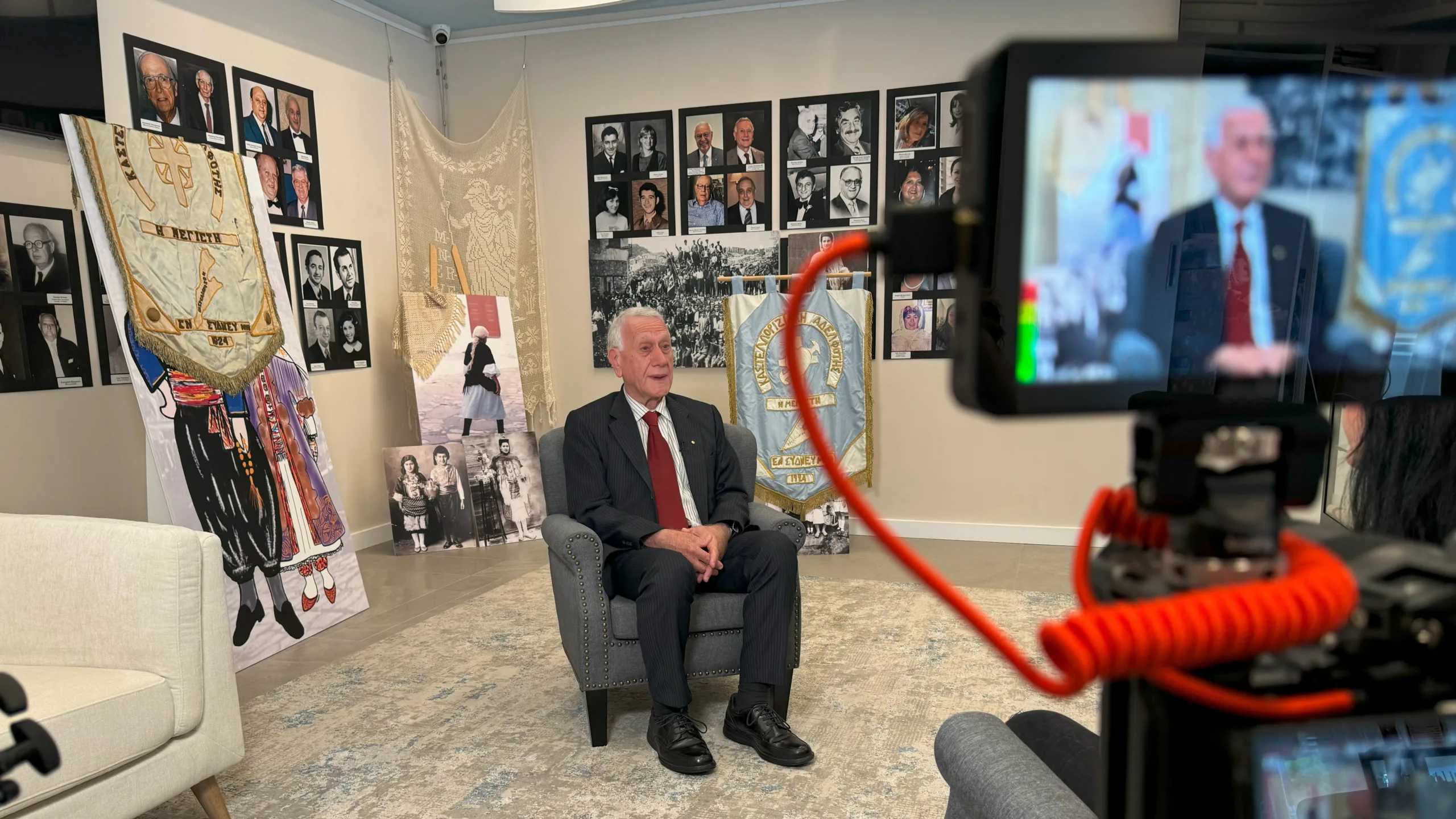“Our People Their Stories – Οι Άνθρωποί μας, οι Ιστορίες τους” is the name of the pioneering project undertaken by the Greek Orthodox Archdiocese of Australia, which records and showcases the personal stories of members of our community—individuals who migrated from Greece to Australia, primarily in the second half of the last century.
“Our People Their Stories” brings to the forefront an era that is already threatened by the shadow of oblivion, as first and second generation migrants gradually pass away and their narratives fade from the memories of their descendants and the broader community.
This period, during which the foundations for the flourishing and prosperity of Hellenism in Australia were laid, is brought back to life through the website www.opts.org.au. Here, the oral testimonies of Greek Australians are presented in the form of video stories and podcasts, alongside rare photographic material provided by the individuals themselves or sourced from the archives of the Greek Orthodox Archdiocese.

The people who share their life stories are indeed “our people,” as reflected in the project’s title. Their experiences and struggles mirror pieces of the personal journeys of older Greek Australians, while for younger generations, they offer glimpses into the lives of their parents, grandparents, and great-grandparents. These stories remind us—and reveal to us—a world of different anxieties, concerns, and priorities compared to today:
- “I thought to myself, if I stay in Greece with two children, how will I educate them? How?! I never had the chance to study, so at best, my children might finish primary or secondary school… And then what? They said Australia was a good place. Ok then, we will leave for a better future…”
— Giannis Mazmanidis (Bankstown, NSW), on his worries about his children’s future, which led him to migrate.
- “We boarded the Patris at 5 p.m., and my mother and sister stayed at the dock until 5 a.m., when the ship finally set sail. Many times, while I was still on board, I thought, ‘Let me turn back. Let me not leave.’ I regretted it so many times, especially seeing my mother standing there on the dock, believing I wouldn’t go through with it.”
— Apostolos Tsanis (Lakemba, NSW), recalling the heartbreaking moments before parting from his family in Piraeus to embark on his journey to Australia.
- “We didn’t know where we were going or what we would find. Especially the young women who left their villages with only a photo of a groom introduced to them by someone else—not even knowing if the photo truly depicted the right person.”
— Fr John Daskalakis (Crows Nest, NSW), on the uncertainty that gripped migrants on their voyage to the unknown, particularly the proxy brides who set out not only for an unknown land but also to meet a usually unknown person.
- “(The house) had three or four bedrooms, but five different families lived there—18 people in total. Each family had one shelf in the fridge. […] People would ask which factory had the most work, not how much it paid. That was the mindset: more working hours.”
— Giorgos Staikos (Earlwood, NSW), on his first home in Sydney and the determination of Greek migrants to work hard to survive and succeed.
- “Within a week and a half, I found a job at a factory. I worked from 6 a.m. to 10:30 p.m. There was plenty of work. I needed the money because I was sending money back home every month both to my father and siblings.”
— Kostas Lianos (Newtown, NSW), on his priority after settling in Sydney: finding work and supporting his family in Greece.
- “I started to realise they didn’t want me because I was a ‘new Australian.’ I overheard them saying it to each other.”
— Sofia Haska (Moore Park, NSW), on facing successive rejections from prospective employers due to her migrant background.
- “Back then, our community was so close-knit… Every weekend, there was a gathering at someone’s house or a park.”
— Michalis Falaras (Menai, NSW), on the strong bonds among Greek Australians, who spent their free time socialising with fellow compatriots.
- “I dressed myself… I prepared myself as a bride. No hairdressers, no friends, no one was there.”
— The late Martha Gianopolitis (Brighton-Le-Sands, NSW), on her wedding day in 1956, in conditions vastly different from those of later generations.
- “Our first days were difficult because we stayed locked inside, unable to communicate with anyone. On Fennell Street, where we settled, there was a Greek shop where we could go and at least be understood while shopping. […] (Our children) were enrolled in an English school. But because their names—Dimitrios, Eleftherios, Dimitra—were hard for people to pronounce, they told us that Dimitrios would be called Jim, Dimitra would be called Ari, and Eleftherios would be called Eric. We couldn’t fathom this; we couldn’t accept it…”
— Ioannis Dimou (Parramatta, NSW), on the struggles of adapting to Australia, particularly the language barrier and the cultural compromises Greek families had to make.
- “Back then, people would line up outside the real estate offices, find a lawyer, take out a loan—because big companies would lend money—and buy their first house. The whole family worked until it was paid off.”
— Christos Christogeorgis (Bayview Park, NSW), on the rush of migrants to real estate agencies, anxious to secure their first home, often taking out loans and repaying them through hard work and strict budgeting.
These are just some of the memories shared by Greek Australians who narrate the struggles of their lives while painting a broader picture of the Greek Australian experience—especially during the major migration wave from the early 1950s to the mid-1970s.
The “Living Museum” of Our People Their Stories already hosts dozens of moving and captivating stories, freely accessible to anyone online. The project was officially launched and blessed by His All-Holiness Ecumenical Patriarch Bartholomew in October 2024, in the presence of Archbishop Makarios of Australia and the Director of the Media Office of the Archdiocese, Markellos Petropoulos, who initiated and is responsible for the implementation of this project. Since then, the collection has continued to grow, receiving widespread praise from the public.


The project’s team continues to work tirelessly, gathering more personal stories, recording them through audiovisual media, and utilising modern technology and cinematic storytelling. The final results will gradually be presented in the “Living Museum,” but also on the “small screen” of ERT television programs, with which Our People Their Stories has established a partnership.
As for the protagonists of this thoughtful journey into the past when Hellenism took root in Australia, they can be anyone willing to share their personal story and enrich our collective memory. Interested individuals or their relatives, from all corners of Australia, can participate in Our People Their Stories free of charge. To get involved, they can contact the project team by phone (02 9690 6100), email (contact@opts.org.au), or via the submission form at www.opts.org.au/tell-your-story/

